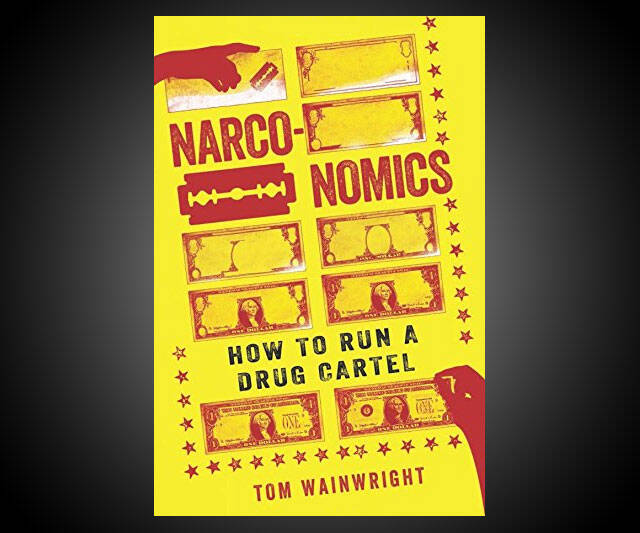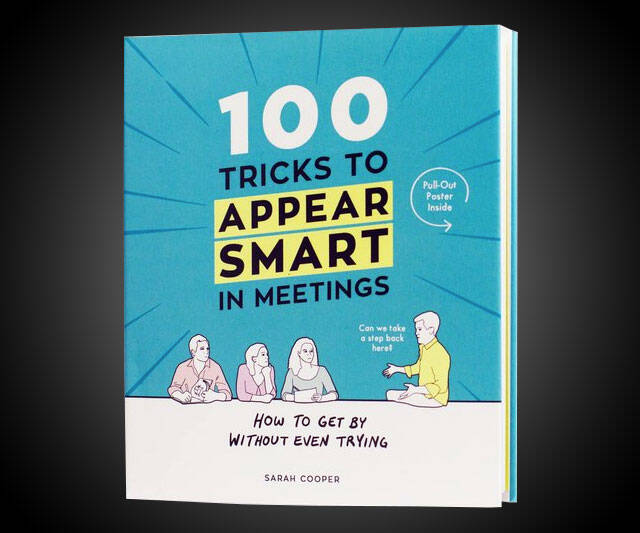How To Run A Drug Cartel | ||||||||||||
| ||||||||||||
Product Description
What drug lords learned from big business
How does a budding cartel boss succeed (and survive) in the 300 billion illegal drug business? By learning from the best, of course. From creating brand value to fine-tuning customer service, the folks running cartels have been attentive students of the strategy and tactics used by corporations such as Walmart, McDonald's, and Coca-Cola.
And what can government learn to combat this scourge? By analyzing the cartels as companies, law enforcers might better understand how they workand stop throwing away 100 billion a year in a futile effort to win the war” against this global, highly organized business.
Your intrepid guide to the most exotic and brutal industry on earth is Tom Wainwright. Picking his way through Andean cocaine fields, Central American prisons, Colorado pot shops, and the online drug dens of the Dark Web, Wainwright provides a fresh, innovative look into the drug trade and its 250 million customers.
The cast of characters includes Bin Laden,” the Bolivian coca guide; Old Lin,” the Salvadoran gang leader; Starboy,” the millionaire New Zealand pill maker; and a cozy Mexican grandmother who cooks blueberry pancakes while plotting murder. Along with presidents, cops, and teenage hitmen, they explain such matters as the business purpose for head-to-toe tattoos, how gangs decide whether to compete or collude, and why cartels care a surprising amount about corporate social responsibility.
More than just an investigation of how drug cartels do business, Narconomics is also a blueprint for how to defeat them.
How does a budding cartel boss succeed (and survive) in the 300 billion illegal drug business? By learning from the best, of course. From creating brand value to fine-tuning customer service, the folks running cartels have been attentive students of the strategy and tactics used by corporations such as Walmart, McDonald's, and Coca-Cola.
And what can government learn to combat this scourge? By analyzing the cartels as companies, law enforcers might better understand how they workand stop throwing away 100 billion a year in a futile effort to win the war” against this global, highly organized business.
Your intrepid guide to the most exotic and brutal industry on earth is Tom Wainwright. Picking his way through Andean cocaine fields, Central American prisons, Colorado pot shops, and the online drug dens of the Dark Web, Wainwright provides a fresh, innovative look into the drug trade and its 250 million customers.
The cast of characters includes Bin Laden,” the Bolivian coca guide; Old Lin,” the Salvadoran gang leader; Starboy,” the millionaire New Zealand pill maker; and a cozy Mexican grandmother who cooks blueberry pancakes while plotting murder. Along with presidents, cops, and teenage hitmen, they explain such matters as the business purpose for head-to-toe tattoos, how gangs decide whether to compete or collude, and why cartels care a surprising amount about corporate social responsibility.
More than just an investigation of how drug cartels do business, Narconomics is also a blueprint for how to defeat them.
Top Reviews
How drug cartels follow the business practices of mainstream businesses, and the economics of why thby Bernie Gourley,Top Contributor: Fantasy Books (5 out of 5 stars)
February 23, 2017
"Narconomics" is about how drug cartels are taking pages from the playbooks of big businesses like Walmart and Coca-cola. In cases like diversifying into new markets or deciding to collude with a competitor, this might not seem surprising. However, it may come as a shock to find out about the franchising and CSR (corporate social responsibility) practices of drug cartels. Other than being outside access to the justice system, and thus resorting to violence to achieve what contracts, mediators, and courts would do for other businesses, the drug business it turns out is very much a business.
Along the way a secondary story emerges that is just as interesting and even more important. It's the story of how the drug war makes no sense from the standpoint of economic logic. Destroying fields in South America only makes for poorer farmers because their monopsonistic (i.e. single buyer) market pushes the cost of lost crops back onto them. And because raw product is such a tiny portion of retail price, their destruction has almost no effect on prices at the user end. Furthermore, as more US and European states legalize marijuana, it seems that this will have more of an effect at putting cartels out of business and ending their reign of violence than all the arms shipments and foreign aid for drug enforcement ever had.
The book consists of ten chapters, each of which addresses an area of business practices that have been taken up by the drug cartels. Chapter one is about supply chains, and in the case of cocaine there is a rather long one. The raw product is grown in South America and must be infiltrated into the US-usually through Mexico. (For a while there was a prominent Caribbean route, but it was shut down-at least for a while.) This is where we learn about how the cartels adapt to eradicated crops, as well as how the product is marked up at various stages of the operation.
Chapter 2 is about the decision to compete versus collude. We mostly read about the competition, because in a lawless market competition equals violence. However, over time cartels have been increasingly willing to agree on distribution of territory. Although, there are also clever means to compete unique to criminal enterprises, such as engaging in violence in someone else's territory to cause the police to crack down there-thus making it harder for said opposition.
Chapter 3 is about human resources, and the different approaches used to handle problems in this domain. In the movies, an drug cartel employee who fouled up always gets a bullet to the brain, but it seems that this isn't always the case-though it certainly happens. Different countries and regions have differing labor mobility. In some cases, there is no labor mobility. (i.e. if one has a gang's symbols tattooed all over one's body, one can't interview with a rival gang and Aetna sure as hell isn't going to hire you.)
Chapter 4 is about public relations and giving to the public. One doesn't think about drug lords engaging in CSR, but in some cases they may be more consistent with it than mainstream businesses. The cartels face an ongoing risk of people informing on them, and at least some of those people can do so without their identities becoming known. Violence is often used to solve problems in this domain, but it can't do it all. That's why drug lords build churches and schools, and often become beloved in the process.
Chapter 5 explores "offshoring" in the drug world. This may seem strange, but drug cartels, too, chase low-cost labor. But it's not just about lowering costs, it's also about finding a suitable regulatory environment-which in the cartel's case means a slack one. An interesting point is made that all the statistics on doing business are still relevant to the drug business, but often in reverse. That is, if Toyota is putting in a plant, it wants a place with low corruption, but if the Sinaloa want to put in a facility--the easier the bribery the better.
Chapter 6 describes how franchising has come to be applied to drug cartels-famously the Zetas. The franchisor provides such goods as better weaponry in exchange for a cut of profits. Of course, there's always a difference in incentives between franchisors and franchisees when it comes to delimiting territory, and this doesn't always work out as well for drug dealers as it does for McDonald's franchisees.
While the bulk of the book focuses on cocaine and marijuana, Chapter 7 is different in that most of it deals with the wave of synthetic drugs that has popped up. The topic is innovating around regulation, and so it's certainly apropos to look at these drugs. If you're not familiar, there are many synthetic drugs that are usually sold as potpourri or the like. Once they're outlawed, the formula is tweaked a little. In a way, these "legal highs" may be the most dangerous because no one knows what effect they'll have when they put the out on the street.
In chapter 8 we learn that the drug world hasn't missed the online retail phenomena. Using special web browsers, individuals are able to make transactions that are not so difficult to trace. In an intriguing twist, the online market may foster more trust and higher quality product than the conventional street corner seller ever did.
Chapter 9 examines how drug traffickers diversify-most notably into human trafficking. Exploiting their knowledge of how to get things across the border, they become "coyotes."
The last chapter investigates the effect of legalization, and it focuses heavily upon the effects that Denver's legalizing marijuana has had in Denver, in the rest of the country, and on the cartels. Wainwright paints a balanced picture that shows that not everything is perfect with legalization. E.g. he presents a couple cases of people who ingested pot-laced food products intended for several servings, and did crazy stuff. However, the bottom line is that legalization (and the regulation and taxation that comes with it) seems to be the way to go if you want to really hurt the cartels and stem the tide of violence, as well as to reduce the number of people showing up at the ER having ingested some substance of unknown chemical composition.
There is an extensive conclusion, about the length of one of the chapters that delves into the many ways our approach to eliminating drug use is ill-advised and dangerous. This connects together a number of the key points made throughout the chapter.
I found this book fascinating. Wainwright does some excellent investigative reporting-at no minor risk to life and limb. If you're interested in issues of business and economics, you'll love this book. If you're not into business and economics, you'll find this book to be an intriguing and palatable way to take on those subjects.
Will Change Your Views on All Addictive Substances.
by John M. Messinger (5 out of 5 stars)
February 29, 2016
I am a conservative dentist, with conservative social views and conservative prescribing practices, who once thought I knew most everything about drug lords, drug addicts, and addictive substances. Then, in October 2014 we found our 24 year old son, dead in our bathroom with a syringe in his hand. I have spent the past 16 months in grief, depression, and wanting to deal with drug dealers in the most violent, painful means imaginable but with no means, plan, or intel to carry this out. The local police have basically have shown zero interest in his case, since they ruled us out as suspects. This book has made me realize that our nation's (world's) drug problem is an economic problem and needs to be addressed in those terms. This extremely well written and researched book gives me a set of arguments to present to our state representatives. An excellent and less emotional review can be read above by Loyd Eskildson
This is a fact based, rational examination of how ...
by Bismark (5 out of 5 stars)
March 25, 2016
This is a fact based, rational examination of how drug cartels operate and by implication, why they continue to thrive. Although the author speaks in terms of the economics of a drug based business, one is logically lead to the inescapable conclusion that our past and current efforts to eradicate the drug trade are woefully misguided. This book is an enlightening and eye-opening dissection of narco economics. If you've ever wondered why the "War on Drugs" has been lost, you'll find a very entertaining and logical answers in the reading of this book.
Unrealistic socialist blather
by Kindle Customer (2 out of 5 stars)
November 30, 2018
This fellow writes like a freshman economics student at one of the ubiquitous socialism -infested junior colleges. He is so proud of having mastered a few economic concepts that his hubris completely prevents him from recognizing the mental gymnastics he must perform in order to reach his utopian solutions. I read about a quarter of the book before I had to put it down due to nausea inspired by his preachy, arrogant and juvenile attitude. If this guy ever grows up and has to deal with a few real world issues, he might write a book worth reading. I regret the time l spent giving this one too many chances.
Addictive economics
by Kevin (5 out of 5 stars)
June 1, 2017
Nearly every book about the drug trade suffers from one fundamental flaw: guesstimates about the financial and other figures related to drug trafficking. This is so even when academics pretend they are relying on solid data while actually making an ideological case about drugs (or America). But 34-year-old journalist Tom Wainwright, the Britain editor of the Economist and the magazine's former correspondent for Mexico and Central America and the Caribbean, has a university background in economics, politics and philosophy, which makes for clear analysis and a creative approach to figuring out the realities of the underworld.
As one example of how the value drug seizures are falsely estimated by officials, Wainwright cites a Mexico City marijuana haul which US newspapers reported was worth over half-a-billion US dollars. The actual value, says Wainwright, was probably more like US$10 million. That's because all drugs have to be processed before being sold, so using the street value for crops destroyed, Wainwright points out, is like estimating the value of a steer based on the cost of a steak in a restaurant.
Throughout the book's ten chapters, Wainwright applies economic concepts like monopolies and labour supply to show how the drug trade works. He deals not only with staples like marijuana and cocaine, but also designer drugs created in laboratories and discusses how the Internet has affected the trade in illegal narcotics.
Applying business models, Wainwright explains that "Cartels play a role more like that of large supermarkets, buying produce from farmers, processing and packaging it, then selling it to consumers."
The book is also leavened with lively anecdotes and colourful characters. Wainwright writes that "Straightforward ineptitude is frequently the cause of drug traffickers' downfall, according to the Home Office researchers, who noted that the 'soap opera lifestyles' of dealers and their associates were often what caused them to be caught," In one such case, a courier who had to hand over $US500,000 in cash decided to put the bills on a bed and have sex with his 17-year-old outside woman, taking selfies while doing so. When the girlfriend showed the pics to the driver's wife, the wife became so enraged that she tipped off the police about him.
Much of the book is devoted to showing why existing anti-trafficking polices aren't working. For instance, Wainwright explains that
destroying crops doesn't raise the prices that wholesale farmers charge to cartels, because the armed groups that control the cocaine trade in Colombia act as monopsonies. That means that one group has a monopoly in specific regions, like cable companies in Trinidad and Tobago until recently. All that destroying crops does is make poor farmers poorer, says Wainwright, while the cartels' profits remain the same.
Moreover, he cites figures showing that, from coca leaf to cocaine powder, the mark-up is more than 30,000 percent. Put another way, even if destroying crops tripled the farmer's price, the retail price in the United States would rise less than one percent.
"This does not seem like a good return on the billions of dollars invested in disrupting the supply of leaves in the Andes," Wainwright dryly remarks.
The final chapter is titled, with seeming egoism, "Why Economists Make the Best Police Officers." But Wainwright's book proves his core point as to why an economics approach rather than an ideological one will do most to reduce the ill effects of drug trafficking.
Great stories but too bad the author is lazy and arrogant with his so called solutions
by Michael Edelman (3 out of 5 stars)
July 26, 2019
This books seems to be written by one author with two minds IMO. One writes thorough and gripping stories about the subject. The statistics regarding the problem are interesting and well thought out. However, I cannot understand why the last few pages of each chapter needs to be devoted to the authors so called solutions. How can you write pages and pages about the problem and then decide you can present a solution in 2 pages? At best he gives one anecdotal example of something that works. Invariably the solution has something to do with the government throwing money at the problem. There is almost no research or statistics done in this regard. This guy is clearly left wing and is imposing his political beliefs with no regard for statistics or data. It is shameful and lazy how he ruins such an entertaining book by cramming his political beliefs down the readers throat. It would be so much more intellectually honest to not include any of that if you don't want to do it right and make a real case.
An easy five stars!
by Bruce_in_LA (5 out of 5 stars)
July 16, 2017
An easy five stars! I work in strategy consulting so I download a fair number of new strategy books. A lot of them I drop after chapter 2 and move on.
NARCONOMICS was fantastic - really interesting and enjoyable. It was my go-to summer audiobook! The narrator was excellent, by the way. And I literally had some laugh out loud moments. The author is good as Steven Johnson, by favorite current non fiction author, and that's a high standard. Readers who enjoy this book may enjoy Steven Johnson (though he writes about technology & society not business per se) and the recent book Brand Luther, taking an economist's/marketer's/business strategist's view of the Reformation.
Here was a laugh out loud moment for me, and let me say, I am here improvising the quotation that I heard last week as audio, so it's not a literal quote. "Wainwright writes that on the Dark Net, he gets rapid customer-centric feedback from anonymous encrypted messaging. "Even when I was deliberately trying to annoy, as when I messaged an online crack pipe dealer Violent86 whether he could engrave a friend's name on a gift pipe. Within a few hours, he politely emailed back that he couldn't, but he wished me luck in finding a vender that could."
I liked it much more than I expected.
by Steve (5 out of 5 stars)
April 11, 2017
I would never have any real real interest in economics, but one of the podcasts that I listen to recommended this book, and I decided that the concept was so out if left field that I would give this a listen.
I highly recommend this book. I thought it was going to be boring, but as I was listening to it on my car trip, I found myself quietly thinking "holy expletive" as I learned about a bunch of the economic thoughts surrounding the drug trade.
Wainwright wrote a very good book on how the Drug Cartel's operate world wide ...
by Elmo Townsend (4 out of 5 stars)
October 3, 2017
Mr. Wainwright wrote a very good book on how the Drug Cartel's operate world wide and run their organizations just like any legitimate business that hires college educated Business Administration majors from the top name colleges to advise them how to run their's. While the U.S. throws billions of dollars away a year to foreign third world countries to fight our "War on Drugs", we are being outsmarted and out done by less than high school educated people who have become masters of the "Trickle down" economic theory and the use of violence to make their business thrive and profit beyond any concept that Peter Drucker could have dreamed of.
I would love for Mr. Wainwright to write a follow up book on how money that is appropriated by Congress for the "War on Drugs" with in the borders of the United States is spent and what has been most and least effective in the spending of this money.
Unique detailing of the illegal and legal drug economies. ...
by Charlie G (5 out of 5 stars)
July 19, 2017
Unique detailing of the illegal and legal drug economies. It's unique on two fronts - one it's from an economic and business point of view and two the author doesn't get as political or emotional as most tellings of this subject. But the book does have a moral to it, it's just that the facts and stories the author brings is hard to deny. So there's a quiet confidence behind the words.
Even if you're totaling against legalization, the business analysis of the trade will be interesting enough for you.
Customers Who Bought This Item Also Bought
- The Panama Papers: Breaking the Story of How the Rich and Powerful Hide Their Money
- El Narco: Inside Mexico's Criminal Insurgency
- Illicit: How Smugglers, Traffickers, and Copycats are Hijacking the Global Economy
- Killing Pablo: The Hunt for the World's Greatest Outlaw
- Wolf Boys: Two American Teenagers and Mexico's Most Dangerous Drug Cartel
- Thinking, Fast and Slow
- McMafia: A Journey Through the Global Criminal Underworld
- McMafia: A Journey Through the Global Criminal Underworld
- Illicit: How Smugglers, Traffickers and Copycats are Hijacking the Global Economy
- War on Peace: The End of Diplomacy and the Decline of American Influence
*If this is not the "How To Run A Drug Cartel" product you were looking for, you can check the other results by clicking this link







